- Home
- Lorenzo Carcaterra
Paradise City Page 25
Paradise City Read online
Page 25
“It’s about life,” Saltzman said to him. “How can it then not be real or sad?”
Murray Saltzman also exposed Lo Manto to his first taste of Camorra treachery. For years, the old man had reluctantly paid a weekly tariff of fifty dollars to the Rossi family. In return, the dry cleaner was allowed to stay in operation and not be bothered by any of the local thugs. Lo Manto would watch as each week a tall, slender young man would come into the shop, stand with an arm draped over the cash register, and smile as the old man counted out the five ten-dollar bills. Mr. Saltzman would usually stay quiet the rest of that workday, going about his business, his mind in another place.
“Why does he take your money?” Lo Manto once asked him. He had been in the shop close to six months and had exchanged hard glances with the young collector in the tan jacket on more than one occasion.
“Because that is how he earns his,” Mr. Saltzman said, “off the hard sweat of other people. I thought it would be different in this country. Not like it was for me back home. But it is all the same, no matter which end of the ocean you live on. There will always be those that take. In Europe it was your life. Here it is your money.”
“What if you didn’t pay?” Lo Manto asked. “What would happen then?”
“I never asked,” Mr. Saltzman said. “But I know it wouldn’t be good. Not for me and not for my store.”
“Still,” Lo Manto said, “it’s not right what he does. The money doesn’t belong to him. It belongs to you.”
Mr. Saltzman put an arm around the boy’s sturdy shoulders. “You will learn soon enough, my young friend,” he told Lo Manto, “that most of what happens in this world is not right.”
A month later, the Rossi crew doubled Mr. Saltzman’s tariff, kicking it up to one hundred dollars a week. The old man was having trouble meeting the payments and keeping up with the other expenses of the shop.
“You need to let me go, I would understand, Mr. Saltzman,” Lo Manto said to him late one night as they were shutting the front door and turning on the alarm. “I don’t want to leave you in a bad spot.”
“I let you go, Gianni, then who would be left to listen to my stories?” Mr. Saltzman answered. “You don’t just work for me. You’re my friend. And I like to keep the few friends I have around.”
Ten days later, Murray Saltzman, a short, distinguished white-haired gentleman who had survived two concentration camps and had seen his two younger sisters buried alive, was found dead in the back of the dry cleaner’s, his body wedged inside the steam presser, his throat slashed to the bone. He had missed only one payment in all the years he ran his business, but that was one payment too many for the young collector with the crooked smile.
Lo Manto didn’t see the young Camorrista again until three months to the day Murray Saltzman was buried. He came into Carmine DelGardo’s candy store to pick up a carton of Marlboros and a six-pack of Budweiser. He took the cigarette carton and the cold beer from DelGardo and turned to walk out of the store. “This is the U.S. of A., smartass,” DelGardo said. “You pay as you go.”
The collector turned and stared at DelGardo, his eyes giving him a hard glare. “You don’t want any trouble with me,” he said in a low voice.
“And I won’t get none,” DelGardo said. “So long as you leave cash for what’s in your hand or put the smokes and drink back where you found them. Either way, won’t ruin my day.”
The collector stood near the door, smiled at DelGardo, and dropped the six-pack and the cigarette carton to the floor. “I’ll be back some other time,” he said. “When you’re not in such a bad mood. Maybe then you and me can drink some beer and have a few smokes. How’s that sound to you?”
“Like a morning in hell,” DelGardo said, turning his back to the collector.
The collector opened the door and slid out, turning his attention to his next target in the neighborhood. Lo Manto looked up at DelGardo and placed two quarters on the counter, flashing him a pack of Juicy Fruit gum. “That guy have a name?” he asked.
“He’s got a lot of things, that dickwad,” DelGardo said. “A name’s only one of them.”
“What is it?”
“Reno Senzani,” DelGardo said. “But that’s only to his mother and some miserable Hungarian skank he keeps on the side. Everybody else calls him Reno the Squid.”
“Why they call him that?” Lo Manto asked.
“They say he’s into so much shit that he’s gotta have at least eight arms to carry all that cash around,” DelGardo said. “You know, like an octopus. Besides, the skinny fool likes the name. Thinks people will remember him better.”
“He’s right,” Lo Manto said.
Lo Manto started his descent down the fire escape and stopped at the first landing. He peered into the window, gazing down at a large, well-maintained living room filled with imported furniture and ornate paintings. The Squid had his back to him, a bottle of wine in one hand, a thick glass in the other. Lo Manto stepped back and looked at his watch. He had arranged with Joey Tugs McGraw to meet the Squid down at the Chelsea Piers at two in the morning. McGraw was supposed to tell the Squid that Lo Manto was a dealer from Italy looking to dump a high-six-figure load of pure heroin on the New York streets. He was in a rush to make the deal happen and would be willing to take less than the full freight from anyone who pulled the merchandise from his hands. Lo Manto figured that McGraw passed only some of that information on to the Squid. He counted on some form of betrayal coming into play and decided it would be in his best interests to jump the gun and meet the Squid an hour earlier at a cozier spot. He checked his watch. It was twelve minutes past one in the morning.
Lo Manto thought now would be the best time to pay a visit to the man who murdered Mr. Murray Saltzman.
The loud hum of the 8,000-btu air conditioner drowned out any noise Lo Manto made on the thin fire escape steps. He watched and waited until the Squid, his jacket off, two semiautomatics at rest on a small coffee table next to it, sat down on his leather couch and spread his legs. He sipped from the glass of red wine in his right hand and channel-surfed with the remote in his left. Lo Manto looked down at the window and saw the latch was closed. He shifted the .38 to his waist and took a deep breath, his jaw working the three pieces of Bazooka bubble gum.
He was in the living room and on his feet in less than fifteen seconds. The sound forced the Squid to his feet, his glass shattering on the floor, red wine spilled on his trousers and the leg of his couch. Lo Manto stared at the Squid and smiled. “I love reunions,” he said. “They help bring back so many memories.”
“I should have killed you when you were a punk-ass little kid,” the Squid said. “Instead of waiting till now to get it done.”
“But you were busy in those days, remember?” Lo Manto said. “Besides, you liked your targets older, as I recall. That way they didn’t have the strength to fight back.”
The Squid looked at the broken window and the shattered glass resting in a circle around Lo Manto’s feet. “I don’t remember the rules in Naples,” he said. “But in New York breaking into someone’s apartment is a crime. An even bigger one if you’re a cop.”
“I don’t figure you to be the type of guy who would put a complaint out,” Lo Manto said. “Especially since what happened was an accident. I slipped on the wet fire escape and couldn’t grab the railing in time.”
The Squid turned away from Lo Manto and gave a quick glance to the coffee table, his two guns resting side by side. Lo Manto caught the look. “Ten seconds, if you still have the instincts and the speed,” the detective said to the Squid. “Get to the guns, grab them in your hands, aim them my way, and start pumping out bullets.”
“There’s time for you to die, cop,” the Squid said, a thin smirk spread across his face. “I waited this long. It could hold a while longer.”
“Am I keeping you from something?” Lo Manto asked. “A deal you need to close? A pickup you need to make? An innocent old man you need to torture and kill?”
“Not me,” the Squid said. “I got all night to be entertained. There wasn’t shit on the TV. Then you came along to spice it up a bit.”
Lo Manto stepped away from the window, his boots crumbling the glass beneath them, and walked deeper into the living room. He saw the suitcase, the one that Tugs McGraw had brought to their meet, resting on its side next to the television set, the channel tuned to an MSNBC documentary. “Okay by you if I take a look around?” Lo Manto asked. “I’m thinking of maybe getting a place of my own in the area. This way, it works out right, we could be neighbors again.”
“I don’t think you’d like it around here much anymore,” the Squid said. “The place isn’t the same as when you lived here. Not as many Italians and a lot more blacks and Ricans. Not as safe as the old days. That’s why I carry the guns.”
“I wonder how they feel about having a lowlife piece of shit in their neighborhood doing drug deals?” Lo Manto asked.
“You have to ask the spics and the niggers, you want an answer to that,” the Squid said. “I don’t deal shit. If that’s what you heard, then you heard wrong.”
Lo Manto picked up the suitcase, tossed it on the coffee table, and popped it open. Inside were four individual kilo bags of heroin. “Then all this dope can’t belong to you,” Lo Manto said, looking away from the packets and at the Squid. “You know, a narc comes walking in here, even by accident like I did, he’s going to think this is stuff you’re planning to move. He might not be so quick to toss the blame to the blacks and the Puerto Ricans. He might look to impound your ass, instead.”
“I don’t know how that got there,” the Squid said, barely compressing a smile. “And even if I did, so what? What are you going to do? Arrest me? This ain’t Naples, wop cop. You got no weight on these streets.”
“So then we’d both be in trouble,” Lo Manto said. “I don’t know about you, but I can’t afford to get into another jackpot. My boss back in Naples, Inspector Bartoni, he has no patience for cops who bring him problems. But if there are no drugs, then you and me, we’re both in the clear.”
“You’re starting to bore me, cop,” the Squid said. “And I hate it when I get bored.”
The Squid looked past Lo Manto, down the narrow hallway corridor to his right, at the slow-moving shadow of Joey Tugs McGraw gently easing his way into the living room. McGraw held a gun in both hands, walking in bare feet and stepping gingerly on the Asian carpet that lined the hall, anxious not to make the wooden panels under the hand-sewn tapestry creak. Lo Manto caught the look and ignored it. Instead, he threw the Squid’s two guns into the open briefcase, lifted it and carried it into the kitchen. He turned the tap on the cold water faucet and let it run at full speed into the empty sink. “I am very impressed,” he told the Squid. “I would never take you for a man who owned a Braun tap. That’s top-of-the-line. The more I hear, the more I believe that crime does pay.”
“Maybe you should think about switching sides,” the Squid said. “Or do what every other cop I know does. Work both ends of the room.”
Lo Manto reached over and pulled a large kitchen knife out of a wooden sheath and sliced open the first bag of heroin. He turned it over and flipped it into the sink, watching as the white powder melted under the force of the running water as it slid down into the silver drain mouth. He looked up and saw a mixture of horror and anger cross the Squid’s face. “Relax, dealer,” Lo Manto said. “It’s not like your bosses are going to blame you for all this prime-time dope being flushed. Like you said, they can throw the weight against all those black and Puerto Rican people.”
“I am going to take my time killing you,” the Squid said. “Do you worse than that old Jew you used to like so much. Make you scream like I made him scream.”
Lo Manto cut open the second bag of heroin, tossed it in the sink and moved the knife to his left hand. He pulled the .38 from his waist, moved toward the Squid, and stopped two feet away from him. “You know how they say a cop can never use force against an unarmed man?” Lo Manto asked. “You heard that, right?”
The Squid nodded, his eyes shifting slowly from the cop to McGraw, now standing at the edge of the living room. “Yeah,” he said. “What about it?”
Lo Manto lifted his .38 and fired a single shot into the Squid’s right leg. “That’s only true in New York,” he said. “We don’t really have that law in Naples.”
He watched as the dealer reached down and grabbed at his knee, the force of the bullet sending a seismic shock wave through the Squid’s body, blood gushing through the small hole in his jeans just below the kneecap. Red blotches ran down and formed thick puddles on the orange-shaded Oriental rug. The Squid was too stunned to scream, his eyes wide, his lower lip cut and bleeding from the bite he put on it.
Lo Manto looked away from the Squid and followed the shadow that was moving to his left. He turned around, braced his knees, and fired four shots into the foyer, three of them hitting Joey Tugs McGraw, one finding the center of his heart. McGraw’s two guns fell to the ground and he followed, facedown and dead.
The Squid jumped on Lo Manto, squeezing down on the detective’s neck with the full strength of both hands, his good knee shoved against the younger man’s back. The force caused Lo Manto to drop his gun to the floor, the thick hands around his throat cutting off his breathing passages. “Get ready to taste it, cop,” the Squid said. “Get ready to die.”
Lo Manto reared up and jammed the butt end of one elbow into the Squid’s open wound. That forced the dealer to ease up on the hold around the detective’s neck. Lo Manto rose to one knee, turned, and drove the knife he held in his left hand deep into the center of the Squid’s stomach. He held it there for several long seconds and then lifted the knife up, shredding bone, tissue, and skin as he made his way to the Squid’s chest. Lo Manto got to his feet, the Squid’s hands now wrapped tightly around his wrists, his head trembling, eyes red and bulging. White foam mixed with blood oozed down the sides of his mouth and the veins at his neck were engorged. Lo Manto pulled away from the Squid, shoved the hands down, and took a step back. He then lifted his right leg and kicked the knife deeper into the Squid’s chest, sending the dealer crashing back onto the leather couch. He flopped down to one side, his head hanging off the edge of the couch, eyes still open, dead.
Lo Manto looked down at the Squid and shook his head. “I’m sorry it took me so long, Mr. Saltzman.”
He stepped over the body of Joey Tugs McGraw and went back to the sink to finish flushing down the final two bags of heroin.
Jennifer sat on the bench across from the polar bears at the Bronx Zoo, holding a small paper bag filled with roasted chestnuts. The early morning sun warmed her face, the soft breeze blew strands of hair across her eyes. She smiled when she saw a small parade of children, led by an eager group of parents, point and stare with wonder at the massive bears flopping around in the cold water or stretched out over the shiny stones that served as their home. The Bronx Zoo had always been a sanctuary for Jennifer, a place to retreat when the problems of the day seemed strong enough to overwhelm her. She would come there as a child, in her starched Catholic-school uniform, spending a few morning hours gawking at the animals, giggling with her friends, and losing herself in the dark recesses of the reptile room. She would sometimes go there with her mother, the two of them quietly walking the expansive grounds, taking comfort in each other’s company. Most of the time Jennifer went by herself, considering it her own special place to make decisions or face the truth about the realities of her existence. She went there the day after she was accepted as a member of the Police Academy and on the morning she was made a third-grade detective. She spent four long afternoons in the zoo, frozen to a bench across from the elephants, in the days after her first police shoot-out.
And she went there the day after her mother’s funeral.
Jennifer cracked open two of the chestnuts, tossed the skins into a garbage bin to her right, and watched as Assunta slowly walked toward the bench. The old woma
n sat on the far end, draping a large blue handbag between them. “I didn’t think you would come,” Jennifer said. “But I’m glad you did.”
“The buses were running late,” Assunta said, staring out at a cluster of smiling children. “And I don’t move as fast as I once did.”
Jennifer looked over at her and smiled. “I heard you were moving pretty fast the other day,” she said. “Outran one shooter and put down another.”

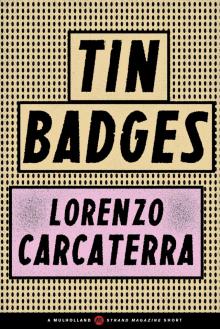 Tin Badges
Tin Badges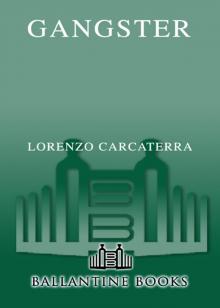 Gangster
Gangster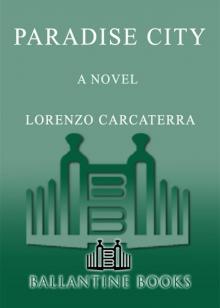 Paradise City
Paradise City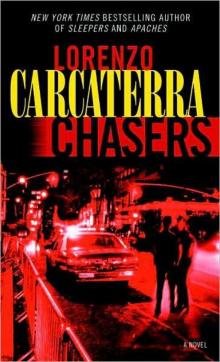 Chasers
Chasers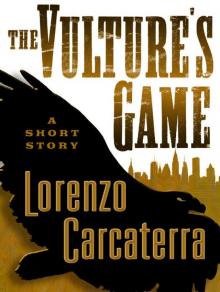 The Vulture's Game
The Vulture's Game Payback
Payback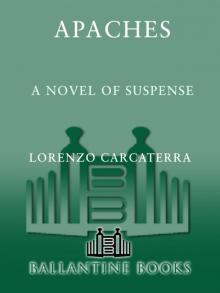 Apaches
Apaches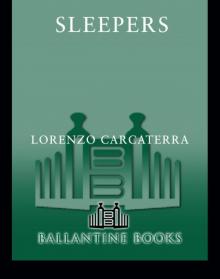 Sleepers
Sleepers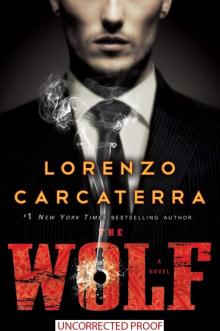 The Wolf
The Wolf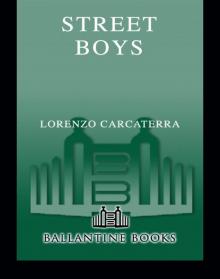 Street Boys
Street Boys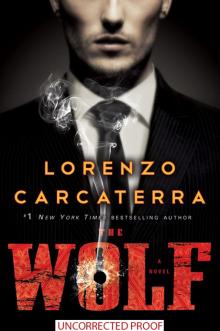 The Wolf: A Novel
The Wolf: A Novel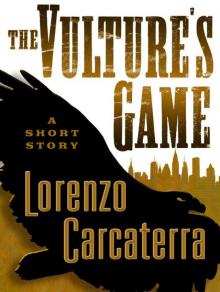 The Vulture's Game (Short Story)
The Vulture's Game (Short Story)